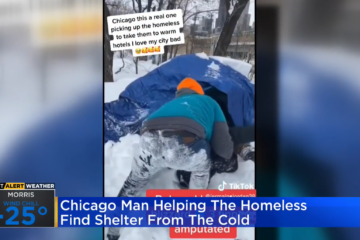 View Video
View Video
February 12th, 2026, 03:15 PM EST
New year, new rules.
As people across the United States usher in a new decade, a wave of new laws will bring changes big and small.
From car seats to natural hair, here are some of the ones going into effect in 2020.
Good news for workers.
The minimum wage is set to go up in 72 jurisdictions in 2020, according to the advocacy group National Employment Law Project.
Most of those changes are set to begin on the first day of 2020, though New York’s pay raise is set to begin Dec. 31, 2019, the NELP reported.
Twenty-one states and 26 cities and counties, mostly in California, will raise the minimum wage on New Year’s Day. In 17 of those jurisdictions, the new rate will reach or exceed $15 an hour.
Four more states and 23 more cities and counties will join later in the year, with 15 of them raising wages to $15 an hour or more. Illinois and St. Paul, Minnesota, will raise their minimum wages twice in 2020.
“These increases will put much-needed money into the hands of the lowest-paid workers, many of whom struggle with high and ever-increasing costs of living,” researcher and policy analyst Yannet Lathrop wrote in a blog post about the new wages.
But let us not forget that the federal minimum wage has remained unchanged since 2009, at $7.25 an hour.
There’s a reason your inbox has been getting spammed with privacy notices lately. The California Consumer Privacy Act (CCPA), the nation’s toughest privacy law, is set to take effect starting Wednesday.
The landmark law allows California residents to demand that companies disclose what data they have collected on them. And if users want that data deleted, companies will have to comply.
The law applies to for-profit companies that generate more than $25 million in annual gross revenue, generate more than 50% of their annual revenue from selling customers’ personal data or have personal data for more than 50,000 people.
CCPA could set a precedent for the rest of the United States — the law has already prompted other states to consider their own privacy measures.
And while non-California residents can’t request their data be deleted, they can read through the new terms of service to see what data companies are collecting.
As the #MeToo movement inspired more people to come forward with their experiences of sexual abuse, some states are relaxing their deadlines to bring lawsuits for previous offenses.
California will suspend the statute of limitations for three years beginning Jan. 1, giving victims of all ages the chance to pursue prosecution. The state is also expanding the statute of limitations for childhood victims of sexual abuse. Under the new law, victims will have until age 40 or five years from the time the abuse was discovered to file civil lawsuits.
Illinois will remove the statute of limitations on criminal sexual assault, aggravated criminal sexual assault and aggravated criminal sexual abuse, regardless of the age of the victim.
The state eliminated time limits on prosecuting sex crimes against minors in 2017, but adult victims still faced a ticking clock. Previously, prosecutors had 10 years to bring charges, but the offense must first have been reported to law enforcement within three years.
After another year of mass shootings and heated debates over gun control, states are taking action.
Colorado is among the states enacting gun restrictions — its “red flag” law takes effect Jan. 1. The law allows family, household members and law enforcement to petition for a court order to temporarily take guns away from an individual deemed to be in danger of hurting themselves or others.
There’s already been a lot of opposition to the law, though, and there’s no telling what will happen come Wednesday. A number of the state’s counties have declared themselves as Second Amendment “sanctuaries,” while some sheriffs have previously said they’d rather go to jail than enforce the law.
Meanwhile, Tennessee is moving in the other direction, making it easier for residents to receive a concealed carry handgun permit.
Pot smokers in the Midwest, rejoice.
Anyone 21 and older can buy and possess recreational marijuana in Illinois beginning in the new year.
Under the law, Illinois residents will be able to purchase and possess 30 grams of cannabis, five grams of cannabis concentrate and cannabis-infused products containing no more than 500 milligrams of THC. People who don’t live in Illinois can buy half of each of those amounts.
Medical patients can buy marijuana seeds and grow up to five plants at home, as long as the plants are kept out of public view. The law also pardons individuals with nonviolent convictions for amounts of cannabis up to 30 grams.
New York state becomes the latest to end the money bail system, which critics call “wealth-based incarceration.”
On Wednesday, the state eliminates money bail for nearly all misdemeanor and nonviolent felony cases. The new law could free thousands of incarcerated people from pretrial detention, according to a preliminary analysis by the Center for Court Innovation.
But there are exceptions, including cases involving sex crimes, domestic violence, witness intimidation or tampering and terrorism-related charges, among others.
It’s always a good idea to bring reusable bags with you to the grocery store.
But starting in 2020, forgetting them at home could cost you.
Oregon is the latest state to ban single-use plastic bags at grocery stores, requiring shoppers to bring their own bags or pay a small fee for paper ones.
The city of Albuquerque, New Mexico, is also gearing up for a similar ecofriendly initiative.
Single-use plastic bags, including compostable bags and plastic ones less than 2.25 millimeters thick, will be banned, according to CNN-affiliate KRQE. The city plans to encourage residents to go green by passing out about 2,000 reusable bags at grocery stores and city facilities, the station reported.
You really might want to think twice before sending out that text while you’re stopped at an intersection.
Starting Wednesday, law enforcement officers in Florida will begin writing tickets for drivers caught texting and driving. Tickets will be $30 for non-moving violations and $60 for moving violations. The fines go up even more if you’re speeding.
Massachusetts enacts a similar law later in the year.
Starting Feb. 23, drivers in the state will be banned from texting and generally using their phone while driving, although Bluetooth and “hands-free” modes will be allowed.
Law enforcement officers will issue warnings only for the first month or so, but after March 31, drivers can expect to be fined.
Cyclists have long had to abide by the same traffic laws as their motorized companions — much to their annoyance. In Oregon, that’s going to change.
Gone are the days of coming to a complete stop at every stop sign, even when no one else is around. A new state law that goes into effect on New Year’s Day allows cyclists to treat stop signs and blinking red lights as yields. As long as they slow their bikes to a safe speed, they’ll be able to breeze right through.
Black students and employees in California can finally feel free to be themselves.
On Wednesday, the Golden State becomes the first in the U.S. to ban employers and school officials from discriminating against people based on their natural hair.
The Crown Act makes it illegal to enforce dress code or grooming policies against hairstyles such as afros, braids, twists and locks.
“This law protects the right of black Californians to choose to wear their hair in its natural form, without pressure to conform to Eurocentric norms,” state Sen. Holly Mitchell said earlier this year. “I am so excited to see the culture change that will ensue from the law.”
Kids are not going to be happy about this.
A new law in Washington state could keep children in booster seats until they’re almost in middle school.
The law requires children who have outgrown harness seats to sit in booster seats until they are at least 4 feet 9 inches tall.
According to the Washington State Patrol, kids can ditch the booster seats once they’re older than 13, KREM reported.
The-CNN-Wire
™ & © 2020 Cable News Network, Inc., a WarnerMedia Company. All rights reserved.
 View Video
View Video
February 12th, 2026, 03:15 PM EST
 View Video
View Video
January 17th, 2026, 08:08 AM EST
 View Video
View Video
November 25th, 2025, 12:14 PM EST
 View Video
View Video
November 20th, 2025, 10:35 AM EST
 View Video
View Video
November 12th, 2025, 03:09 PM EST
 View Video
View Video
November 4th, 2025, 10:18 PM EST
 View Video
View Video
October 16th, 2025, 02:36 PM EDT
 View Video
View Video
September 18th, 2025, 06:14 PM EDT
 View Video
View Video
September 11th, 2025, 08:30 AM EDT
 View Video
View Video
September 3rd, 2025, 01:40 PM EDT
 View Video
View Video
September 2nd, 2025, 12:22 PM EDT
 View Video
View Video
August 4th, 2025, 10:35 AM EDT
 View Video
View Video
July 29th, 2025, 06:01 PM EDT
 View Video
View Video
July 3rd, 2025, 01:17 PM EDT
 View Video
View Video
May 6th, 2025, 04:31 PM EDT
 View Video
View Video
April 14th, 2025, 05:24 PM EDT
 View Video
View Video
January 20th, 2025, 04:03 PM EST
 View Video
View Video
January 16th, 2025, 04:44 AM EST
 View Video
View Video
January 7th, 2025, 04:08 PM EST
 View Video
View Video
November 11th, 2024, 11:13 AM EST
 View Video
View Video
November 7th, 2024, 10:38 AM EST
 View Video
View Video
October 10th, 2024, 04:55 PM EDT
 View Video
View Video
October 2nd, 2024, 06:48 AM EDT
 View Video
View Video
July 24th, 2024, 01:06 PM EDT
 View Video
View Video
July 23rd, 2024, 04:28 AM EDT
 View Video
View Video
July 13th, 2024, 11:13 PM EDT
 View Video
View Video
July 11th, 2024, 05:54 AM EDT
 View Video
View Video
June 11th, 2024, 06:15 AM EDT
 View Video
View Video
May 30th, 2024, 05:59 PM EDT
 View Video
View Video
May 9th, 2024, 01:23 PM EDT
 View Video
View Video
May 9th, 2024, 05:38 AM EDT
 View Video
View Video
March 14th, 2024, 05:01 AM EDT
 View Video
View Video
February 8th, 2024, 05:22 AM EST
 View Video
View Video
January 30th, 2024, 12:50 PM EST
 View Video
View Video
January 15th, 2024, 02:04 PM EST
 View Video
View Video
December 14th, 2023, 07:45 AM EST
 View Video
View Video
December 5th, 2023, 07:37 AM EST
 View Video
View Video
November 28th, 2023, 04:58 AM EST
 View Video
View Video
November 21st, 2023, 04:54 AM EST
 View Video
View Video
November 16th, 2023, 05:39 AM EST
 View Video
View Video
November 7th, 2023, 04:05 AM EST
 View Video
View Video
November 2nd, 2023, 05:01 AM EDT
 View Video
View Video
October 26th, 2023, 04:53 AM EDT
 View Video
View Video
October 24th, 2023, 04:39 AM EDT
 View Video
View Video
October 20th, 2023, 05:10 AM EDT
 View Video
View Video
October 19th, 2023, 07:39 AM EDT
 View Video
View Video
August 30th, 2023, 11:49 AM EDT
 View Video
View Video
July 27th, 2023, 10:34 AM EDT
 View Video
View Video
June 15th, 2023, 01:21 PM EDT
 View Video
View Video
April 4th, 2023, 07:24 PM EDT
 View Video
View Video
March 29th, 2023, 07:19 PM EDT
 View Video
View Video
March 23rd, 2023, 05:55 AM EDT
 View Video
View Video
March 14th, 2023, 05:51 PM EDT
 View Video
View Video
March 8th, 2023, 05:56 PM EST
 View Video
View Video
March 1st, 2023, 06:27 PM EST
 View Video
View Video
February 23rd, 2023, 05:56 PM EST
 View Video
View Video
February 16th, 2023, 05:34 PM EST
 View Video
View Video
February 8th, 2023, 05:47 PM EST
 View Video
View Video
February 8th, 2023, 04:45 AM EST
 View Video
View Video
January 31st, 2023, 05:36 PM EST
 View Video
View Video
January 25th, 2023, 05:47 PM EST
 View Video
View Video
January 18th, 2023, 06:09 PM EST
 View Video
View Video
January 10th, 2023, 05:46 PM EST
 View Video
View Video
January 6th, 2023, 01:44 PM EST
 View Video
View Video
January 5th, 2023, 05:26 PM EST
 View Video
View Video
January 3rd, 2023, 08:12 AM EST
 View Video
View Video
December 29th, 2022, 05:06 PM EST
 View Video
View Video
December 26th, 2022, 10:23 AM EST
 View Video
View Video
December 22nd, 2022, 10:24 AM EST
 View Video
View Video
December 20th, 2022, 08:06 AM EST
 View Video
View Video
December 8th, 2022, 07:33 AM EST
 View Video
View Video
December 7th, 2022, 06:10 PM EST
 View Video
View Video
December 6th, 2022, 09:35 AM EST
 View Video
View Video
December 2nd, 2022, 12:03 PM EST
 View Video
View Video
November 22nd, 2022, 04:57 PM EST
 View Video
View Video
November 15th, 2022, 11:02 PM EST
 View Video
View Video
November 9th, 2022, 07:21 PM EST
 View Video
View Video
November 3rd, 2022, 06:00 PM EDT
 View Video
View Video
November 2nd, 2022, 06:49 PM EDT
 View Video
View Video
October 27th, 2022, 05:39 PM EDT
 View Video
View Video
October 25th, 2022, 09:26 AM EDT
 View Video
View Video
October 25th, 2022, 09:24 AM EDT
 View Video
View Video
October 20th, 2022, 07:41 PM EDT
 View Video
View Video
October 14th, 2022, 05:16 PM EDT
 View Video
View Video
October 6th, 2022, 06:10 PM EDT
 View Video
View Video
September 29th, 2022, 05:42 PM EDT
 View Video
View Video
September 22nd, 2022, 05:59 PM EDT
 View Video
View Video
September 22nd, 2022, 11:22 AM EDT
 View Video
View Video
September 15th, 2022, 04:58 PM EDT
 View Video
View Video
September 8th, 2022, 04:48 PM EDT
 View Video
View Video
August 31st, 2022, 04:51 PM EDT
 View Video
View Video
August 25th, 2022, 05:23 PM EDT
 View Video
View Video
August 18th, 2022, 04:08 PM EDT
 View Video
View Video
August 17th, 2022, 08:28 PM EDT
 View Video
View Video
August 17th, 2022, 10:21 AM EDT
 View Video
View Video
August 11th, 2022, 04:50 PM EDT
 View Video
View Video
August 3rd, 2022, 05:19 PM EDT
 View Video
View Video
August 1st, 2022, 06:37 PM EDT
 View Video
View Video
July 27th, 2022, 05:39 PM EDT
 View Video
View Video
July 20th, 2022, 04:20 PM EDT
 View Video
View Video
July 18th, 2022, 08:48 AM EDT
 View Video
View Video
July 6th, 2022, 03:45 PM EDT
 View Video
View Video
June 30th, 2022, 11:44 AM EDT
 View Video
View Video
June 29th, 2022, 04:23 PM EDT
 View Video
View Video
June 25th, 2022, 06:20 PM EDT
 View Video
View Video
June 24th, 2022, 11:59 PM EDT
 View Video
View Video
June 22nd, 2022, 06:18 PM EDT
 View Video
View Video
June 17th, 2022, 01:00 AM EDT
 View Video
View Video
June 15th, 2022, 04:48 PM EDT
 View Video
View Video
June 8th, 2022, 05:45 PM EDT
 View Video
View Video
June 1st, 2022, 06:13 PM EDT
 View Video
View Video
June 1st, 2022, 02:44 PM EDT
 View Video
View Video
May 13th, 2022, 12:05 AM EDT
 View Video
View Video
May 2nd, 2022, 02:33 PM EDT
 View Video
View Video
April 27th, 2022, 05:16 PM EDT
 View Video
View Video
April 21st, 2022, 08:40 AM EDT
 View Video
View Video
April 20th, 2022, 06:04 PM EDT
 View Video
View Video
April 13th, 2022, 05:23 PM EDT
 View Video
View Video
April 6th, 2022, 05:23 PM EDT
 View Video
View Video
April 5th, 2022, 06:22 PM EDT
 View Video
View Video
March 24th, 2022, 08:28 AM EDT
 View Video
View Video
March 24th, 2022, 01:45 AM EDT
 View Video
View Video
March 23rd, 2022, 03:42 PM EDT
 View Video
View Video
March 22nd, 2022, 09:30 PM EDT
 View Video
View Video
March 9th, 2022, 04:12 PM EST
 View Video
View Video
March 2nd, 2022, 05:27 PM EST
 View Video
View Video
February 23rd, 2022, 06:16 PM EST
 View Video
View Video
February 16th, 2022, 05:10 PM EST
 View Video
View Video
February 9th, 2022, 06:32 PM EST
 View Video
View Video
February 9th, 2022, 04:12 AM EST
 View Video
View Video
February 3rd, 2022, 10:13 AM EST
 View Video
View Video
February 2nd, 2022, 06:43 PM EST
 View Video
View Video
February 2nd, 2022, 07:52 AM EST
 View Video
View Video
January 26th, 2022, 05:29 PM EST
 View Video
View Video
January 19th, 2022, 07:09 PM EST
 View Video
View Video
January 12th, 2022, 04:02 PM EST
 View Video
View Video
January 6th, 2022, 04:57 PM EST
 View Video
View Video
January 5th, 2022, 06:40 PM EST
 View Video
View Video
December 22nd, 2021, 02:54 PM EST
 View Video
View Video
December 22nd, 2021, 02:40 PM EST
 View Video
View Video
December 15th, 2021, 06:52 PM EST
 View Video
View Video
December 15th, 2021, 05:52 PM EST
 View Video
View Video
December 9th, 2021, 06:50 AM EST
 View Video
View Video
December 8th, 2021, 05:55 PM EST
 View Video
View Video
December 3rd, 2021, 07:51 AM EST
 View Video
View Video
December 1st, 2021, 06:16 PM EST
 View Video
View Video
November 24th, 2021, 06:23 PM EST
 View Video
View Video
November 17th, 2021, 06:59 PM EST
 View Video
View Video
November 10th, 2021, 06:39 PM EST
 View Video
View Video
November 3rd, 2021, 06:45 PM EDT
 View Video
View Video
October 27th, 2021, 08:22 PM EDT
 View Video
View Video
October 13th, 2021, 05:44 PM EDT
 View Video
View Video
October 6th, 2021, 05:06 PM EDT
 View Video
View Video
September 29th, 2021, 02:31 PM EDT
 View Video
View Video
September 22nd, 2021, 05:44 PM EDT
 View Video
View Video
September 21st, 2021, 05:24 PM EDT
 View Video
View Video
September 15th, 2021, 04:50 PM EDT
 View Video
View Video
September 13th, 2021, 10:48 AM EDT
 View Video
View Video
September 8th, 2021, 04:20 PM EDT
 View Video
View Video
September 7th, 2021, 09:30 PM EDT
 View Video
View Video
September 1st, 2021, 02:12 PM EDT
 View Video
View Video
August 24th, 2021, 02:15 PM EDT
 View Video
View Video
August 17th, 2021, 12:33 PM EDT
 View Video
View Video
August 10th, 2021, 02:40 PM EDT
 View Video
View Video
August 3rd, 2021, 02:01 PM EDT
 View Video
View Video
July 27th, 2021, 03:06 PM EDT
 View Video
View Video
July 20th, 2021, 01:08 PM EDT
 View Video
View Video
July 13th, 2021, 01:14 PM EDT
 View Video
View Video
July 6th, 2021, 01:56 PM EDT
 View Video
View Video
June 29th, 2021, 02:27 PM EDT
 View Video
View Video
June 25th, 2021, 06:52 PM EDT
 View Video
View Video
June 25th, 2021, 08:13 AM EDT
 View Video
View Video
June 25th, 2021, 08:02 AM EDT
 View Video
View Video
June 25th, 2021, 07:46 AM EDT
 View Video
View Video
June 8th, 2021, 02:03 PM EDT
 View Video
View Video
May 25th, 2021, 03:16 PM EDT
 View Video
View Video
May 11th, 2021, 02:00 PM EDT
 View Video
View Video
May 5th, 2021, 08:38 AM EDT
 View Video
View Video
May 5th, 2021, 06:35 AM EDT
 View Video
View Video
May 4th, 2021, 02:21 PM EDT
 View Video
View Video
April 27th, 2021, 03:29 PM EDT
 View Video
View Video
April 21st, 2021, 09:31 AM EDT
 View Video
View Video
April 20th, 2021, 02:36 PM EDT
 View Video
View Video
April 14th, 2021, 09:39 AM EDT
 View Video
View Video
April 13th, 2021, 02:36 PM EDT
 View Video
View Video
March 23rd, 2021, 03:41 PM EDT
 View Video
View Video
March 16th, 2021, 02:36 PM EDT
 View Video
View Video
March 11th, 2021, 09:05 PM EST
 View Video
View Video
March 9th, 2021, 02:08 PM EST
 View Video
View Video
March 4th, 2021, 08:09 AM EST
 View Video
View Video
March 3rd, 2021, 09:31 AM EST
 View Video
View Video
March 2nd, 2021, 09:10 AM EST
 View Video
View Video
February 25th, 2021, 09:45 AM EST
 View Video
View Video
February 23rd, 2021, 02:38 PM EST
 View Video
View Video
February 22nd, 2021, 03:19 PM EST
 View Video
View Video
February 16th, 2021, 03:09 PM EST
 View Video
View Video
February 10th, 2021, 07:45 PM EST
 View Video
View Video
February 3rd, 2021, 07:38 AM EST
 View Video
View Video
February 2nd, 2021, 09:25 PM EST
 View Video
View Video
February 2nd, 2021, 03:14 PM EST
 View Video
View Video
January 26th, 2021, 03:13 PM EST
 View Video
View Video
January 21st, 2021, 08:31 AM EST
 View Video
View Video
January 20th, 2021, 11:00 PM EST
 View Video
View Video
January 19th, 2021, 03:47 PM EST
 View Video
View Video
January 12th, 2021, 02:58 PM EST
 View Video
View Video
January 12th, 2021, 08:51 AM EST
 View Video
View Video
December 29th, 2020, 09:29 PM EST
 View Video
View Video
December 22nd, 2020, 08:56 PM EST
 View Video
View Video
December 18th, 2020, 09:17 AM EST
 View Video
View Video
December 18th, 2020, 03:51 AM EST
 View Video
View Video
December 17th, 2020, 07:27 AM EST
 View Video
View Video
December 16th, 2020, 02:07 AM EST
 View Video
View Video
December 14th, 2020, 07:29 PM EST
 View Video
View Video
December 8th, 2020, 02:18 PM EST
 View Video
View Video
December 4th, 2020, 04:53 PM EST
 View Video
View Video
December 1st, 2020, 04:52 PM EST
 View Video
View Video
December 1st, 2020, 04:32 PM EST
 View Video
View Video
December 1st, 2020, 06:43 AM EST
 View Video
View Video
November 17th, 2020, 08:17 PM EST
 View Video
View Video
November 16th, 2020, 07:18 PM EST
 View Video
View Video
November 10th, 2020, 09:21 PM EST
 View Video
View Video
November 6th, 2020, 11:19 AM EST
 View Video
View Video
November 2nd, 2020, 10:46 AM EST
 View Video
View Video
October 28th, 2020, 08:52 AM EDT
 View Video
View Video
October 25th, 2020, 07:59 AM EDT
 View Video
View Video
October 22nd, 2020, 10:52 PM EDT
 View Video
View Video
October 20th, 2020, 08:13 PM EDT
 View Video
View Video
October 16th, 2020, 11:31 PM EDT
 View Video
View Video
October 14th, 2020, 08:31 AM EDT
 View Video
View Video
October 13th, 2020, 09:11 PM EDT
 View Video
View Video
October 12th, 2020, 07:27 AM EDT
 View Video
View Video
October 7th, 2020, 10:19 PM EDT
 View Video
View Video
September 29th, 2020, 11:13 PM EDT
 View Video
View Video
September 25th, 2020, 03:36 PM EDT
 View Video
View Video
September 24th, 2020, 08:59 AM EDT
 View Video
View Video
September 24th, 2020, 08:12 AM EDT
 View Video
View Video
September 24th, 2020, 02:09 AM EDT
 View Video
View Video
September 23rd, 2020, 12:16 PM EDT
 View Video
View Video
September 17th, 2020, 02:14 PM EDT
 View Video
View Video
August 25th, 2020, 11:12 AM EDT
 View Video
View Video
August 21st, 2020, 08:19 AM EDT
 View Video
View Video
August 14th, 2020, 11:22 AM EDT
 View Video
View Video
August 14th, 2020, 05:38 AM EDT
 View Video
View Video
August 12th, 2020, 01:40 PM EDT
 View Video
View Video
July 31st, 2020, 03:10 PM EDT
 View Video
View Video
July 31st, 2020, 02:01 PM EDT
 View Video
View Video
July 31st, 2020, 01:00 PM EDT
 View Video
View Video
July 28th, 2020, 03:57 PM EDT
 View Video
View Video
July 27th, 2020, 10:30 PM EDT
 View Video
View Video
July 26th, 2020, 10:50 AM EDT
 View Video
View Video
July 25th, 2020, 06:45 PM EDT
 View Video
View Video
July 20th, 2020, 11:21 AM EDT
 View Video
View Video
July 20th, 2020, 08:44 AM EDT
 View Video
View Video
July 19th, 2020, 08:47 PM EDT
 View Video
View Video
June 26th, 2020, 09:34 AM EDT
 View Video
View Video
June 11th, 2020, 04:08 AM EDT
 View Video
View Video
June 10th, 2020, 02:57 PM EDT
 View Video
View Video
June 10th, 2020, 01:34 PM EDT
 View Video
View Video
June 9th, 2020, 12:56 AM EDT
 View Video
View Video
June 6th, 2020, 02:04 PM EDT
 View Video
View Video
June 2nd, 2020, 11:22 AM EDT
 View Video
View Video
May 29th, 2020, 11:01 AM EDT
 View Video
View Video
May 20th, 2020, 01:51 PM EDT
 View Video
View Video
May 19th, 2020, 01:15 PM EDT
 View Video
View Video
May 12th, 2020, 07:32 AM EDT
 View Video
View Video
May 5th, 2020, 02:24 PM EDT
 View Video
View Video
May 5th, 2020, 01:22 AM EDT
 View Video
View Video
May 4th, 2020, 10:14 PM EDT
 View Video
View Video
May 1st, 2020, 02:09 PM EDT
 View Video
View Video
April 29th, 2020, 09:52 AM EDT
 View Video
View Video
April 28th, 2020, 10:34 PM EDT
 View Video
View Video
April 28th, 2020, 11:56 AM EDT
 View Video
View Video
April 27th, 2020, 06:01 AM EDT
 View Video
View Video
April 15th, 2020, 03:49 PM EDT
 View Video
View Video
April 15th, 2020, 03:48 PM EDT
 View Video
View Video
April 14th, 2020, 01:07 PM EDT
 View Video
View Video
April 14th, 2020, 10:13 AM EDT
 View Video
View Video
April 13th, 2020, 05:49 PM EDT
 View Video
View Video
April 12th, 2020, 10:32 AM EDT
 View Video
View Video
April 10th, 2020, 05:13 AM EDT
 View Video
View Video
April 9th, 2020, 09:36 AM EDT
 View Video
View Video
April 3rd, 2020, 03:26 PM EDT
 View Video
View Video
March 30th, 2020, 09:58 AM EDT
 View Video
View Video
March 24th, 2020, 01:54 AM EDT
 View Video
View Video
March 23rd, 2020, 09:31 PM EDT
 View Video
View Video
March 23rd, 2020, 07:38 PM EDT
 View Video
View Video
March 20th, 2020, 10:47 AM EDT
 View Video
View Video
March 19th, 2020, 10:27 AM EDT
 View Video
View Video
March 18th, 2020, 10:51 AM EDT
 View Video
View Video
March 17th, 2020, 12:45 PM EDT
 View Video
View Video
March 17th, 2020, 10:39 AM EDT
 View Video
View Video
March 17th, 2020, 12:43 AM EDT
 View Video
View Video
March 11th, 2020, 07:23 PM EDT
 View Video
View Video
March 9th, 2020, 09:56 AM EDT
 View Video
View Video
March 9th, 2020, 08:35 AM EDT
 View Video
View Video
March 8th, 2020, 04:02 AM EDT
 View Video
View Video
February 28th, 2020, 10:32 AM EST
 View Video
View Video
February 26th, 2020, 05:21 PM EST
 View Video
View Video
February 25th, 2020, 06:24 PM EST
 View Video
View Video
February 21st, 2020, 07:45 AM EST
 View Video
View Video
February 20th, 2020, 08:17 AM EST
 View Video
View Video
February 20th, 2020, 06:51 AM EST
 View Video
View Video
February 19th, 2020, 09:03 PM EST
 View Video
View Video
February 19th, 2020, 10:02 AM EST
 View Video
View Video
February 14th, 2020, 03:30 PM EST
 View Video
View Video
February 13th, 2020, 07:20 AM EST
 View Video
View Video
February 13th, 2020, 07:18 AM EST
 View Video
View Video
February 12th, 2020, 11:22 AM EST
 View Video
View Video
February 12th, 2020, 10:35 AM EST
 View Video
View Video
February 12th, 2020, 07:17 AM EST
 View Video
View Video
February 11th, 2020, 02:56 PM EST
 View Video
View Video
February 11th, 2020, 11:53 AM EST
 View Video
View Video
February 7th, 2020, 06:06 PM EST
 View Video
View Video
February 5th, 2020, 11:05 AM EST
 View Video
View Video
February 3rd, 2020, 05:00 PM EST
 View Video
View Video
February 2nd, 2020, 07:30 AM EST
 View Video
View Video
January 29th, 2020, 12:19 PM EST
 View Video
View Video
January 29th, 2020, 07:41 AM EST
 View Video
View Video
January 26th, 2020, 05:35 PM EST
 View Video
View Video
January 25th, 2020, 09:36 AM EST
 View Video
View Video
January 19th, 2020, 03:18 PM EST
 View Video
View Video
January 17th, 2020, 01:26 PM EST
 View Video
View Video
January 16th, 2020, 12:25 PM EST
 View Video
View Video
January 15th, 2020, 09:50 AM EST
 View Video
View Video
January 10th, 2020, 10:09 AM EST
 View Video
View Video
January 9th, 2020, 10:57 AM EST
 View Video
View Video
January 7th, 2020, 02:23 PM EST
 View Video
View Video
January 7th, 2020, 11:57 AM EST
 View Video
View Video
January 7th, 2020, 09:43 AM EST
 View Video
View Video
January 7th, 2020, 01:37 AM EST
 View Video
View Video
January 2nd, 2020, 02:49 PM EST
 View Video
View Video
January 2nd, 2020, 11:39 AM EST
 View Video
View Video
January 1st, 2020, 04:40 PM EST
 View Video
View Video
December 31st, 2019, 10:46 AM EST
 View Video
View Video
December 31st, 2019, 10:15 AM EST
 View Video
View Video
December 30th, 2019, 03:39 PM EST
 View Video
View Video
December 30th, 2019, 12:11 PM EST
 View Video
View Video
December 24th, 2019, 10:32 AM EST
 View Video
View Video
December 13th, 2019, 08:26 AM EST
 View Video
View Video
December 12th, 2019, 07:56 AM EST
 View Video
View Video
December 11th, 2019, 05:35 PM EST
 View Video
View Video
December 10th, 2019, 08:28 AM EST
 View Video
View Video
December 5th, 2019, 08:33 AM EST
 View Video
View Video
December 4th, 2019, 07:51 AM EST
 View Video
View Video
December 4th, 2019, 03:18 AM EST
 View Video
View Video
December 2nd, 2019, 10:21 AM EST
 View Video
View Video
November 25th, 2019, 08:00 PM EST
 View Video
View Video
November 22nd, 2019, 03:15 PM EST
 View Video
View Video
November 22nd, 2019, 02:57 PM EST
 View Video
View Video
November 21st, 2019, 01:02 AM EST
 View Video
View Video
November 20th, 2019, 08:15 PM EST
 View Video
View Video
November 20th, 2019, 12:54 PM EST
 View Video
View Video
November 19th, 2019, 08:17 PM EST
 View Video
View Video
November 19th, 2019, 10:11 AM EST
 View Video
View Video
November 19th, 2019, 12:08 AM EST
 View Video
View Video
November 18th, 2019, 02:17 PM EST
 View Video
View Video
November 17th, 2019, 06:55 PM EST
 View Video
View Video
November 16th, 2019, 08:25 PM EST
 View Video
View Video
November 16th, 2019, 03:54 PM EST
 View Video
View Video
November 15th, 2019, 03:45 PM EST
 View Video
View Video
November 13th, 2019, 12:17 PM EST
 View Video
View Video
November 12th, 2019, 11:41 AM EST
 View Video
View Video
November 11th, 2019, 09:48 PM EST
 View Video
View Video
November 11th, 2019, 04:03 PM EST
 View Video
View Video
November 11th, 2019, 01:14 PM EST
 View Video
View Video
November 11th, 2019, 12:21 PM EST
 View Video
View Video
November 7th, 2019, 12:42 PM EST
 View Video
View Video
November 6th, 2019, 01:11 PM EST
 View Video
View Video
November 6th, 2019, 08:01 AM EST
 View Video
View Video
November 6th, 2019, 04:30 AM EST
 View Video
View Video
November 5th, 2019, 11:56 PM EST
 View Video
View Video
November 5th, 2019, 03:50 PM EST
 View Video
View Video
November 4th, 2019, 10:08 PM EST
 View Video
View Video
October 31st, 2019, 09:20 PM EDT
 View Video
View Video
October 29th, 2019, 02:23 PM EDT
 View Video
View Video
October 29th, 2019, 01:26 PM EDT
 View Video
View Video
October 29th, 2019, 09:13 AM EDT
 View Video
View Video
October 28th, 2019, 12:46 PM EDT
 View Video
View Video
October 28th, 2019, 07:30 AM EDT
 View Video
View Video
October 27th, 2019, 01:30 PM EDT
 View Video
View Video
October 26th, 2019, 01:22 PM EDT
 View Video
View Video
October 24th, 2019, 09:14 AM EDT
 View Video
View Video
October 23rd, 2019, 09:57 AM EDT
 View Video
View Video
October 22nd, 2019, 09:31 AM EDT
 View Video
View Video
October 21st, 2019, 05:54 PM EDT
 View Video
View Video
October 21st, 2019, 06:40 AM EDT
 View Video
View Video
October 18th, 2019, 11:37 AM EDT
 View Video
View Video
October 15th, 2019, 12:00 PM EDT
 View Video
View Video
October 15th, 2019, 08:15 AM EDT
 View Video
View Video
October 14th, 2019, 09:15 PM EDT
 View Video
View Video
October 14th, 2019, 03:01 PM EDT
 View Video
View Video
October 14th, 2019, 12:16 PM EDT
 View Video
View Video
October 10th, 2019, 08:26 AM EDT
 View Video
View Video
October 9th, 2019, 09:57 PM EDT
 View Video
View Video
October 9th, 2019, 11:28 AM EDT
 View Video
View Video
October 9th, 2019, 09:52 AM EDT
 View Video
View Video
October 8th, 2019, 06:38 PM EDT
 View Video
View Video
October 8th, 2019, 11:07 AM EDT
 View Video
View Video
October 8th, 2019, 06:35 AM EDT
 View Video
View Video
October 7th, 2019, 02:38 PM EDT
 View Video
View Video
October 7th, 2019, 10:20 AM EDT
 View Video
View Video
October 6th, 2019, 03:44 PM EDT
 View Video
View Video
October 4th, 2019, 11:18 AM EDT
 View Video
View Video
October 4th, 2019, 11:13 AM EDT
 View Video
View Video
October 3rd, 2019, 06:00 PM EDT
 View Video
View Video
October 3rd, 2019, 10:50 AM EDT
 View Video
View Video
October 3rd, 2019, 08:13 AM EDT
 View Video
View Video
October 2nd, 2019, 06:47 PM EDT
 View Video
View Video
October 2nd, 2019, 03:32 AM EDT
 View Video
View Video
October 1st, 2019, 05:14 PM EDT
 View Video
View Video
October 1st, 2019, 10:55 AM EDT
 View Video
View Video
October 1st, 2019, 02:58 AM EDT
 View Video
View Video
September 30th, 2019, 09:52 AM EDT
 View Video
View Video
September 29th, 2019, 07:23 PM EDT
 View Video
View Video
September 27th, 2019, 11:44 AM EDT
 View Video
View Video
September 27th, 2019, 09:50 AM EDT
 View Video
View Video
September 26th, 2019, 09:34 AM EDT
 View Video
View Video
September 26th, 2019, 05:21 AM EDT
 View Video
View Video
September 25th, 2019, 09:15 AM EDT
 View Video
View Video
September 25th, 2019, 06:59 AM EDT
 View Video
View Video
September 25th, 2019, 06:19 AM EDT
 View Video
View Video
September 24th, 2019, 11:22 AM EDT
 View Video
View Video
September 24th, 2019, 09:36 AM EDT
 View Video
View Video
September 23rd, 2019, 11:34 AM EDT
 View Video
View Video
September 23rd, 2019, 10:07 AM EDT
 View Video
View Video
September 20th, 2019, 11:24 AM EDT
 View Video
View Video
September 19th, 2019, 11:21 AM EDT
 View Video
View Video
September 18th, 2019, 11:09 AM EDT
 View Video
View Video
September 18th, 2019, 10:44 AM EDT
 View Video
View Video
September 18th, 2019, 09:32 AM EDT
 View Video
View Video
September 17th, 2019, 09:06 PM EDT
 View Video
View Video
September 17th, 2019, 10:43 AM EDT
 View Video
View Video
September 17th, 2019, 09:48 AM EDT
 View Video
View Video
September 16th, 2019, 11:44 AM EDT
 View Video
View Video
September 13th, 2019, 03:03 PM EDT
 View Video
View Video
September 13th, 2019, 11:34 AM EDT
 View Video
View Video
September 13th, 2019, 09:43 AM EDT
 View Video
View Video
September 11th, 2019, 11:21 PM EDT
 View Video
View Video
September 11th, 2019, 07:13 PM EDT
 View Video
View Video
September 11th, 2019, 02:41 PM EDT
 View Video
View Video
September 11th, 2019, 10:59 AM EDT
 View Video
View Video
September 10th, 2019, 04:59 PM EDT
 View Video
View Video
September 10th, 2019, 03:55 PM EDT
 View Video
View Video
September 10th, 2019, 03:24 PM EDT
 View Video
View Video
September 9th, 2019, 05:29 PM EDT
 View Video
View Video
September 9th, 2019, 10:00 AM EDT
 View Video
View Video
September 8th, 2019, 06:11 PM EDT
 View Video
View Video
September 8th, 2019, 03:05 PM EDT
 View Video
View Video
September 6th, 2019, 11:18 AM EDT
 View Video
View Video
September 6th, 2019, 09:52 AM EDT
 View Video
View Video
September 5th, 2019, 11:07 AM EDT
 View Video
View Video
September 4th, 2019, 12:35 PM EDT
 View Video
View Video
September 4th, 2019, 02:44 AM EDT
 View Video
View Video
September 3rd, 2019, 09:14 PM EDT
 View Video
View Video
September 3rd, 2019, 01:43 PM EDT
 View Video
View Video
September 2nd, 2019, 09:53 AM EDT
 View Video
View Video
August 28th, 2019, 11:34 AM EDT
 View Video
View Video
August 27th, 2019, 03:24 PM EDT
 View Video
View Video
August 22nd, 2019, 01:19 PM EDT
 View Video
View Video
August 21st, 2019, 09:01 AM EDT
 View Video
View Video
August 20th, 2019, 08:00 AM EDT
 View Video
View Video
August 19th, 2019, 07:32 AM EDT
 View Video
View Video
August 14th, 2019, 10:38 AM EDT
 View Video
View Video
August 14th, 2019, 09:10 AM EDT
 View Video
View Video
August 13th, 2019, 10:36 PM EDT
 View Video
View Video
August 13th, 2019, 11:31 AM EDT
 View Video
View Video
August 12th, 2019, 06:33 PM EDT
 View Video
View Video
August 12th, 2019, 11:16 AM EDT
 View Video
View Video
August 12th, 2019, 07:41 AM EDT
 View Video
View Video
August 9th, 2019, 10:21 AM EDT
 View Video
View Video
August 7th, 2019, 11:18 AM EDT
 View Video
View Video
August 7th, 2019, 09:53 AM EDT
 View Video
View Video
August 7th, 2019, 09:04 AM EDT
 View Video
View Video
August 7th, 2019, 07:22 AM EDT
 View Video
View Video
August 6th, 2019, 03:59 PM EDT
 View Video
View Video
August 6th, 2019, 03:06 PM EDT
 View Video
View Video
August 5th, 2019, 12:41 PM EDT
 View Video
View Video
August 5th, 2019, 04:27 AM EDT
 View Video
View Video
August 5th, 2019, 03:45 AM EDT
 View Video
View Video
August 2nd, 2019, 11:19 AM EDT
 View Video
View Video
August 2nd, 2019, 11:10 AM EDT
 View Video
View Video
July 31st, 2019, 09:39 AM EDT
 View Video
View Video
July 31st, 2019, 04:52 AM EDT
 View Video
View Video
July 31st, 2019, 04:39 AM EDT
 View Video
View Video
July 30th, 2019, 02:53 PM EDT
 View Video
View Video
July 30th, 2019, 01:33 PM EDT
 View Video
View Video
July 30th, 2019, 11:01 AM EDT
 View Video
View Video
July 28th, 2019, 04:18 AM EDT
 View Video
View Video
July 26th, 2019, 09:41 AM EDT
 View Video
View Video
July 25th, 2019, 07:51 AM EDT
 View Video
View Video
July 24th, 2019, 01:40 PM EDT
 View Video
View Video
July 23rd, 2019, 08:04 AM EDT
 View Video
View Video
July 22nd, 2019, 10:15 AM EDT
 View Video
View Video
July 19th, 2019, 07:20 PM EDT
 View Video
View Video
July 19th, 2019, 12:05 PM EDT
 View Video
View Video
July 19th, 2019, 04:40 AM EDT
 View Video
View Video
July 18th, 2019, 08:26 AM EDT
 View Video
View Video
July 17th, 2019, 04:12 PM EDT
 View Video
View Video
July 17th, 2019, 01:07 PM EDT
 View Video
View Video
July 16th, 2019, 10:42 AM EDT
 View Video
View Video
July 15th, 2019, 02:34 PM EDT
 View Video
View Video
July 15th, 2019, 10:11 AM EDT
 View Video
View Video
July 12th, 2019, 10:51 AM EDT
 View Video
View Video
July 11th, 2019, 07:39 PM EDT
 View Video
View Video
July 11th, 2019, 11:28 AM EDT
 View Video
View Video
July 11th, 2019, 07:54 AM EDT
 View Video
View Video
July 10th, 2019, 12:08 PM EDT